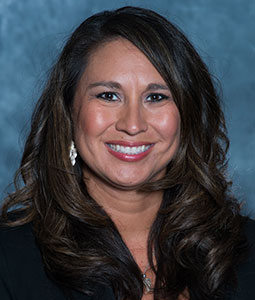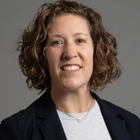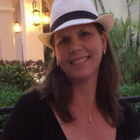November 02, 2022
CAATE 2022 Accreditation Conference Recap
From Oct. 7-8, 2022, more than 220 athletic training educators met in Atlanta, Georgia, to advance their athletic training (AT) education programs and network with one another. Held annually, the CAATE Accreditation Conference provides an engaged learning experience that ensures quality program delivery and promotes quality assurance, improvement and innovation.
Committee Day
Before the conference kicked off, multiple CAATE committees met for Committee Day, including the Accreditation Conference Education Committee; Peer Review Committee; Review Committee; Standards Committee; Diversity, Equity, Inclusion, and Leadership Development Committee (DEI&LD); Residency and Fellowship Standards Committee; and the Residency and Fellowship Peer Review Committee. The Residency and Fellowship Accreditation Council also arrived early to meet ahead of the conference for the one-day event.
Committee Day kicked off with a bias in leadership presentation from DEI&LD Committee members Tamaria Hibbler, MS, ATC, Corey Oshikoya, MEd, ATC, and Jeri Zemke, PhD, ATC. An interactive and informative presentation, the speakers provided committee members with context and relevant definitions and led an exercise of scenarios, allowing time for reflection. The presentation ended with Oshikoya providing key ways in which attendees could apply what they learned to the remainder of their meetings that day.
“The breakout for the DEI assignment was beneficial because I got to meet someone new and hear about what he does in his classes,” says one attendee. “We shared resources and gave each other ideas for improvement.”
Professional Programs
On the first official day of the conference, the day began with CAATE President Eric Sauers, PhD, ATC, FNATA, discussing the interconnections of quality assurance, quality improvement and innovation in AT education.
Throughout the day, participants attended a variety of education sessions, including:
- “A Learning Lab for the Application of Updated CAATE Standards in the Curriculum,” in which R.O. Corbett, PhD, ATC, and Karlita Warren, PhD, ATC, discussed methods of application for DEI and social justice in AT education.
- “Mapping Your Framework: Clinical Experience Tracking,” in which Jess Edler Nye, PhD, ATC, Samar Long, MSEd, ATC, and Zachary Winkelmann, PhD, SCAT, ATC, shared ways AT can improve tracking and documentation and evaluate curricular alignment between the framework, curricular content and clinical education.
- “Comprehensive Review Experience Panel,” where panelists Scott Heinrichs, EdD, LAT, ATC, BC Liscombe, EdD, ATC, and Toni Torres-McGehee, PhD, SCAT, ATC, provided participants with an understanding of the comprehensive review process, roles of peer reviewers and the use of consultants.
Day two began with an expert panel on holistic admissions followed by two sessions — “Compliance With Curricular Content Standards Workshop (Standards 54-94 and DEI 2)” from Bart Anderson, DHSc, ATC, and “Commonly Asked Questions About the Standards (With Q&A)” from Amanda Benson, PhD, ATC, Laura Kunkel, EdD, LAT, ATC, PES, Todd Neuharth, MA, ATC, CPH, and Chris Schmidt, PhD, ATC.
Program Development and Support
Speakers were in alignment with participants’ goals for what they needed to take away from the conference — quality assurance, quality improvement and ideas for innovation, which drove their discussions about improvement of their programs surrounding specific accreditation standards.
Participants were able to embrace changes to the curricular content standards and understand how they can use data to go back to their framework and assessment plans for continued improvement.
Residency and Fellowship Programs
The conference provided an opportunity for the residency and fellowship community to meet and discuss issues and identify initiatives that are unique to their programs. The group ranged from those considering accreditation to those seeking accreditation and already accredited programs.
The conversation focused around:
- The principles of quality assurance and quality improvement;
- How implementing innovation in specialty training will help move the AT profession forward and demonstrate worth to patients, medical colleagues and health care systems;
- The new 2022 standards and the opportunities they present as programs emerge and evolve;
- Strategic approaches to the programmatic framework and future training opportunities the CAATE Education Committee can offer to aid programs; and
- Analysis of marketing approaches to elevate the professional discourse and appreciation for specialty and sub-specialty training through accredited residencies and fellowships.
Thank You!
The CAATE would like to thank all attendees and speakers at the 2022 Accreditation Conference. We are grateful for your participation and contributions to AT education and the CAATE mission.
Volunteer Spotlight: Toni Torres-McGehee, PhD, SCAT, ATC
 Toni Torres-McGehee, PhD, SCAT, ATC, has been involved in the field of athletic training for over 20 years, but it was not what she originally envisioned for herself. It wasn’t until the CAATE president-elect began her collegiate journey as a student athlete that she was exposed to the profession and decided to take a sports medicine class. From that moment on, she was hooked and changed her professional goals, ultimately leading her down an athletic training education path.
Toni Torres-McGehee, PhD, SCAT, ATC, has been involved in the field of athletic training for over 20 years, but it was not what she originally envisioned for herself. It wasn’t until the CAATE president-elect began her collegiate journey as a student athlete that she was exposed to the profession and decided to take a sports medicine class. From that moment on, she was hooked and changed her professional goals, ultimately leading her down an athletic training education path.
Discovering Athletic Training
Born and raised in Gallup, New Mexico, Torres-McGehee aspired to be an engineer when she grew up. Beginning her collegiate journey as a student athlete playing basketball for Cochise College in Douglas, Arizona, she met the school’s athletic trainer, Dave Perry, who just so happened to teach the sports medicine class that would change her life forever.
“Playing sports had always been an integral part of my life,” says Torres-McGehee. “After taking a sports medicine class with Perry, it inspired me to change my professional goals to become an athletic trainer.”
Torres-McGehee’s love for sports and medicine grew over her two years of junior college and she transferred to Southern Utah University (SUU), where she was able to continue playing basketball while also preparing to sit for the Board of Certification for Athletic Training.
“I wanted to attend an institution that would allow me to continue playing basketball and seek a degree that would allow me to sit for my certification,” says Torres-McGehee. “At the time, Ricky Mendini, a former colleague of Perry’s, invited me to come to SUU where they’d be able to work with my basketball schedule while also getting me through the internship route for athletic training.”
Advancing in an Athletic Training Career
After earning her bachelor’s degree in biology and zoology with minors in sports medicine and chemistry, Torres-McGehee moved to Lubbock, Texas, to pursue her master’s degree in sports health preventative rehabilitation at Texas Tech University (TTU). While at TTU, she got a taste of teaching through her work as a teaching assistant within her department and as an athletic training graduate assistant for the university’s medical center. She also provided athletic training services to local high schools during this time, as well as the Lubbock Cotton Kings, a semi-professional hockey team.
Upon completing her master’s at TTU, Torres-McGehee was hired as the head athletic trainer at Wayland Baptist University. She also became an adjunct instructor at both TTU and Wayland Baptist, teaching and sharing her own clinical experiences.
“I went through the ‘internship route,’ and although I had some great clinical experiences, the didactic portion of the internship route was challenging,” says Torres-McGehee. “The number of courses required was simply not enough to prepare a student for the Board of Certification. During my time at TTU and Wayland Baptist University, I had an opportunity to be an adjunct faculty member, and I found myself enjoying integrating my clinical experiences through teaching in the classroom.”
After working three years at TTU and Wayland Baptist, Torres-McGehee decided to pursue her doctorate in exercise physiology at The University of Alabama, where she also had the opportunity to teach in an accredited athletic training program.
In 2006, upon the completion of her doctorate, she accepted an assistant professor position at the University of South Carolina, and has been there ever since.
Volunteering With the CAATE
Torres-McGehee’s interest in volunteering was sparked early on in her career, beginning with a want to be a part of peer reviews.
“Early in my career I was a professional athletic training program director and had an opportunity to oversee my school’s comprehensive review for reaccreditation,” says Torres-McGehee. “During this time, I aspired to be a peer reviewer, but my mentors encouraged me to wait until I was tenured. Once I was granted tenure, I became a peer reviewer and had an opportunity to be on the Peer Review Committee. I have always valued athletic training education, quality assurance and quality improvement for both professional and post-professional athletic training education programs and being a peer reviewer and Peer Review Committee member allowed me to give back to the athletic training education community.”
Another passion that has bled into her volunteer interest is diversity, equity, inclusion (DEI) and accessibility work. Leaning on her experience as associate dean for diversity, equity and inclusion at the University of South Carolina, she has channeled this DEI passion into her role as chair of the Diversity, Equity, Inclusion and Leadership Development Committee (DEI&LD).
“Being the chair of the DEI&LD Committee has not only aligned with my passion but provides me with an opportunity to help the CAATE become a leader in diversifying its volunteers and, in turn, enhance athletic training education through the integration of new DEI standards,” says Torres-McGehee. “It has been an honor and privilege to serve as the chair and I have had the opportunity to work side by side with like-minded athletic training professionals who are all passionate about diversity, equity, inclusion and accessibility.
While still a new CAATE committee, the accomplishments that its members have seen through and the work that the committee continues to do makes Torres-McGehee proud.
“I believe the DEI&LD Committee has done some outstanding work, from assisting with the development of the DEI standards to developing a new selection process for commissioners to a new recruitment, selection and onboarding process for new volunteers and now the integration of leadership development for CAATE volunteers, we’ve made great strides.”
Reflecting on the Present and Looking Ahead
Earlier this fall when it was announced that Torres-McGehee would be the new president-elect for the CAATE, she couldn’t help but think of her favorite quote by Winston Churchill: “We make a living by what we get. We make a life by what we give.”
“I strive to give back and live the mindset of paying it forward to those in need,” says Torres-McGehee. “Throughout my career as an athletic trainer, I ‘pay it forward’ through mentorship, development of health care services to communities in need and most importantly advocacy through DEI efforts throughout my university, the communities we serve and my service to the athletic training profession. Being named president-elect for the CAATE is an honor and a privilege.”
Being the first CAATE president-elect and future president of color, this is an honor Torres-McGehee does not take for granted and understands the weight her election holds.
“I believe representation in leadership matters,” says Torres-McGehee. “It’s empowering and important for students and young professionals to have other leaders of color to look up to. Over the last few years, the CAATE has been intentional about diversifying volunteers, and all of this has led to great diversity within the organization, which will have positive benefits.”
As she reflects on the groundwork the CAATE has been establishing and looks to the future, Torres-McGehee hopes to continue these great efforts and use these recent changes as opportunities.
“Throughout the last few years, the CAATE had undertaken substantial changes, such as a new partnership with association management company Smithbucklin; a new executive director; developing the DEI&LD Committee; integrating a new strategic governance board model, a new strategic plan, a new organizational structure and DEI standards; and revisions to the pass rate standard. I envision the upcoming three to four years as an opportunity to integrate ongoing evaluation and assessment of all the new changes and I look to push the CAATE to continue to be innovative in these efforts and achieve the goals set forth in our strategic plan.”
To achieve said goals, Torres-McGehee looks to see through the following strategic initiatives:
- Retaining CHEA recognition
- Continuing to enhance communication and transparency of the CAATE’s work around accreditation processes and outcomes
- Supporting both professional and residency and fellowship accreditation councils with advancing quality assurance, quality improvement and innovation
- Increasing the number of accredited residency and fellowship programs
- Increasing the CAATE’s global presence with international accredited programs
- Revisiting the strategic plan when goals are completed
- Continuing to increase diversity, equity, inclusion and accessibility among CAATE volunteers.
Specifically looking at athletic training fellowship and residency programs, Torres-McGehee is especially excited for what’s to come during her term.
“The future of athletic training is bright and one of the things I’m excited about is the direction our athletic training fellowship and residency programs are going. CAATE-accredited residency and fellowship programs provide opportunities for certified athletic trainers to engage in advanced preparation through a planned program of didactic and clinical education in specialized content areas. At the recent CAATE conference, Mark Laursen, CAATE director of residency and fellowship, reminded us that being able to specialize in a content area may eliminate the historic perception that athletic trainers are the ‘Jack of all trades, master of none.’”
The Most Rewarding Experiences
Having just started her eighteenth year at the University of South Carolina, Torres-McGehee is grateful for the experiences athletic training has brought her and she can’t help but feel a sense of pride to be part of the community.
“I’m proud of being a Mexican American and first-generation student to complete a bachelor’s degree and a terminal degree,” says Torres-McGehee. “The completion of my doctorate opened so many doors for me professionally. Being a faculty member allows me to educate, influence and mentor students and young professionals at all levels. I’ve had opportunities to enhance my leadership skills through leadership programs and mentorship, and now have the opportunity to work with other great athletic training leaders to continue to advance the field of athletic training education. Overall, I’m proud to be an athletic trainer, leader and faculty member and be able to advocate for health care and education for all.”
ATCAS Fee Waiver Assistance Program Information
The CAATE first introduced income-based ATCAS fee waivers with the 2020-2021 application cycle and continues its commitment to this program. The fee waiver program has been implemented to reduce the financial burden of the application process for selected individuals, which has been shown to encourage applications from those who may find the initial application process to be financially challenging. The program is based on financial need and the determination of low-income guidelines are based on 100% of the U.S. Department of Health and Human Services poverty guidelines. These guidelines are the same as those used for the Health Resources and Services Administration’s Scholarships for Disadvantaged Students (SDS) and Loans for Disadvantaged Students (LDS) programs. The fee waiver program will apply only to the first designation by an applicant. The CAATE remains committed to this program, fully funding 100% of fee waivers submitted through ATCAS to date and encourages programs to direct interested applicants to the fee waiver information through ATCAS.
More information on fee waivers can be found here.
Fee Assistance Program
Beginning at the start of the cycle, fee waivers are provided to qualified applicants on a first-come, first-served basis. Each fee waiver covers only the initial application fee, so if you wish to apply to additional programs, you are responsible for the remaining balance. If you received a fee waiver during a previous cycle, you may still apply for another in the next cycle.
You may request a fee waiver as soon as you create an application.
Qualification Requirements
To qualify for a fee waiver, you must have either:
- Filed a 2021 Federal Income Tax Return Form 1040 with an adjusted gross income that falls below the Low Income Level listed below, or
- Been listed as a dependent on a filed 2021 Federal Income Tax Return Form 1040 with an adjusted gross income that falls below the Low Income Level listed below. If you were claimed as a dependent by a parent or guardian on their 2021 federal income tax return, ATCAS requires you to use that individual's federal income tax return instead of your own.
Additionally, you must request a fee waiver before you submit your application. Requests received after an application has been submitted will not be honored.
If you are approved for a fee waiver, you are required to submit your application within 30 days (including holidays and weekends). Extensions will not be granted; failure to submit your application on time will void your fee waiver and you will not be allowed to reapply for a waiver.
Congratulations to the 2022 CAATE Awards Recipients
At the 2022 Accreditation Conference, we announced the winners of this year's CAATE Awards. Each one symbolizes our profound gratitude to individuals in the athletic training education community that have gone above and beyond to advance our mission. Check out the full description of each award and the recipients here.
Pete Koeheneke Award
 Chris Ingersoll, PhD, LAT, ATC, FACSM, FNATA, FASAHP
Chris Ingersoll, PhD, LAT, ATC, FACSM, FNATA, FASAHP
Dr. Ingersoll is the founding dean of the College of Health Professions and Sciences at the University of Central Florida. Since his first appointment as associate director of the Sports Injury Research Center at UNLV, he has authored over 170 peer-reviewed papers, made 400 presentations, and served as the editor-in-chief of the Journal of Athletic Training.
Bob & Lynn Caruthers Service Award
 Kelley Henderson, EdD, LAT, ATC
Kelley Henderson, EdD, LAT, ATC
Dr. Henderson has been a certified athletic trainer for 23 years and currently serves as the University of West Florida’s program director for the Master of Science in Athletic Training program. She has been involved with the CAATE accreditation process since 2007.
President's Award
 Denise Roosendaal, FASAE, CAE
Denise Roosendaal, FASAE, CAE
In February 2022, Denise Roosendaal received the award for her service to the organization during our executive director transition. Over the course of five months, Denise provided outstanding leadership and support to the CAATE volunteers and staff.
 Ann Donnelly
Ann Donnelly
Ann’s dedication to creating ATCAS has enabled growth from 15 programs in the 2015-16 cycle to 193 in the current cycle. This type of growth is a direct result of Ann’s willingness to go the extra mile and serve our programs.
Thank You to Our Outgoing Board Members
The CAATE would like to thank its three outgoing CAATE Board of Directors members for their service to the board and organization:
- Christopher Ingersoll, PhD, ATC, FNATA, Commissioner and Vice President
- Monty Cavanagh, MD, Commissioner
- Jon Schultz, MD, Commissioner
View the NATA Foundation’s Recent Issues of ‘Research to Clinical Practice’
The National Athletic Trainers’ Association (NATA) Foundation recently released the “Research to Clinical Practice” newsletter, which is an initiative of its Educational Resource Committee and looks to share the latest science behind evidence-based practice with athletic training clinicians and other health care professionals. Check out the first four issues here: August (exertional heart illness), September (concussion management and return-to-play), October (hamstring strain injuries) and November (syndesmotic/high ankle sprains).